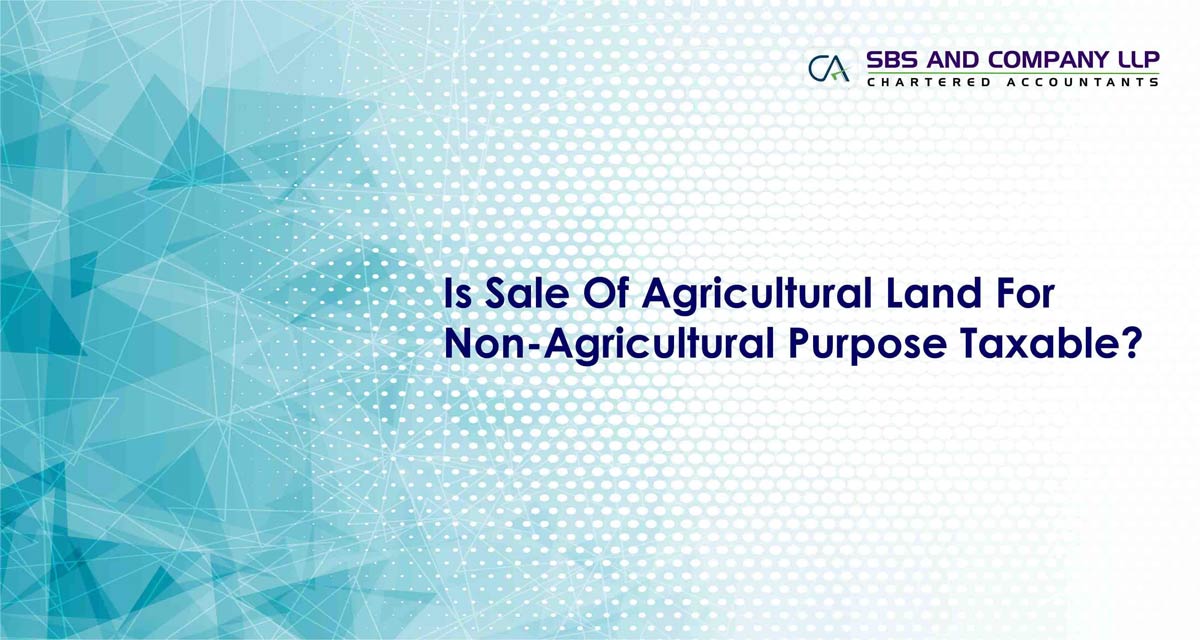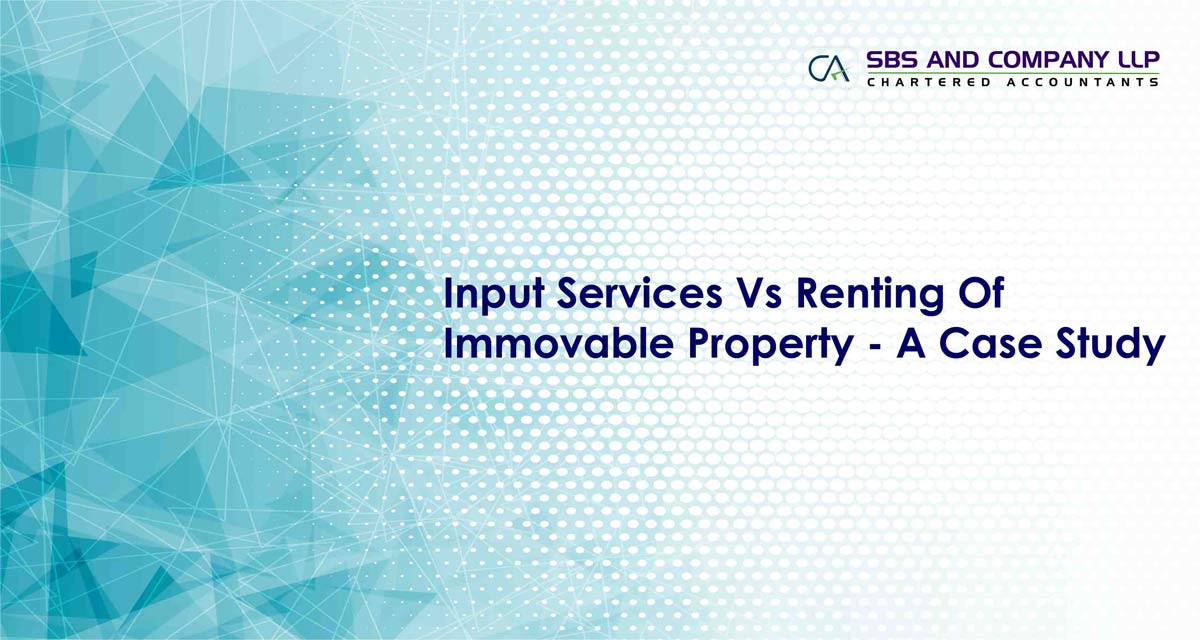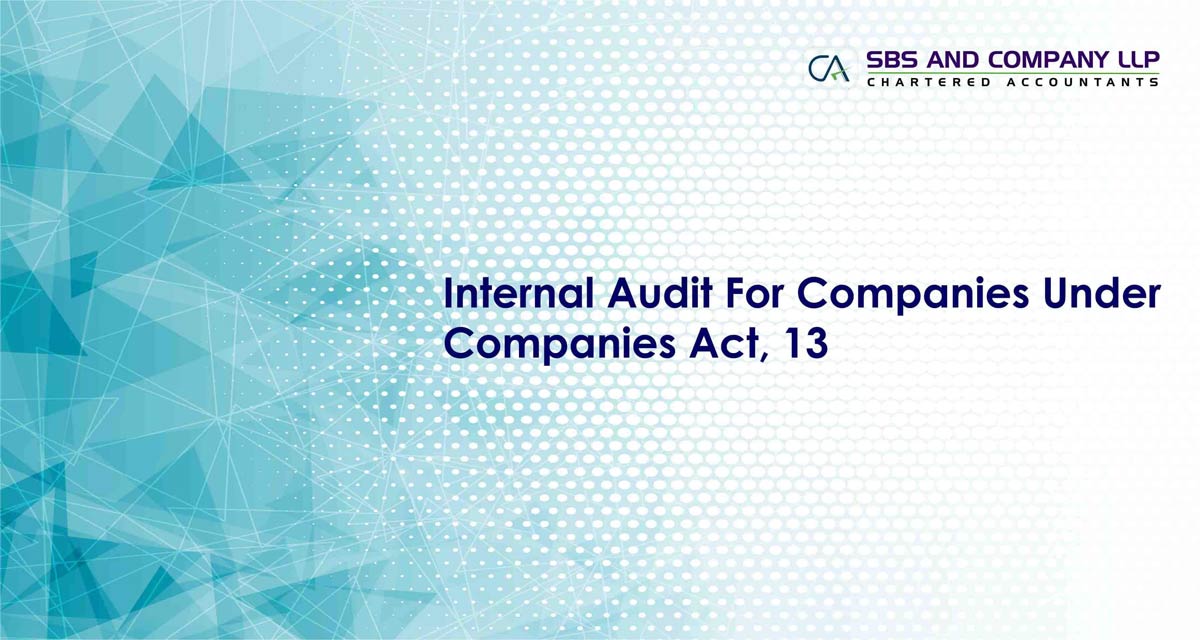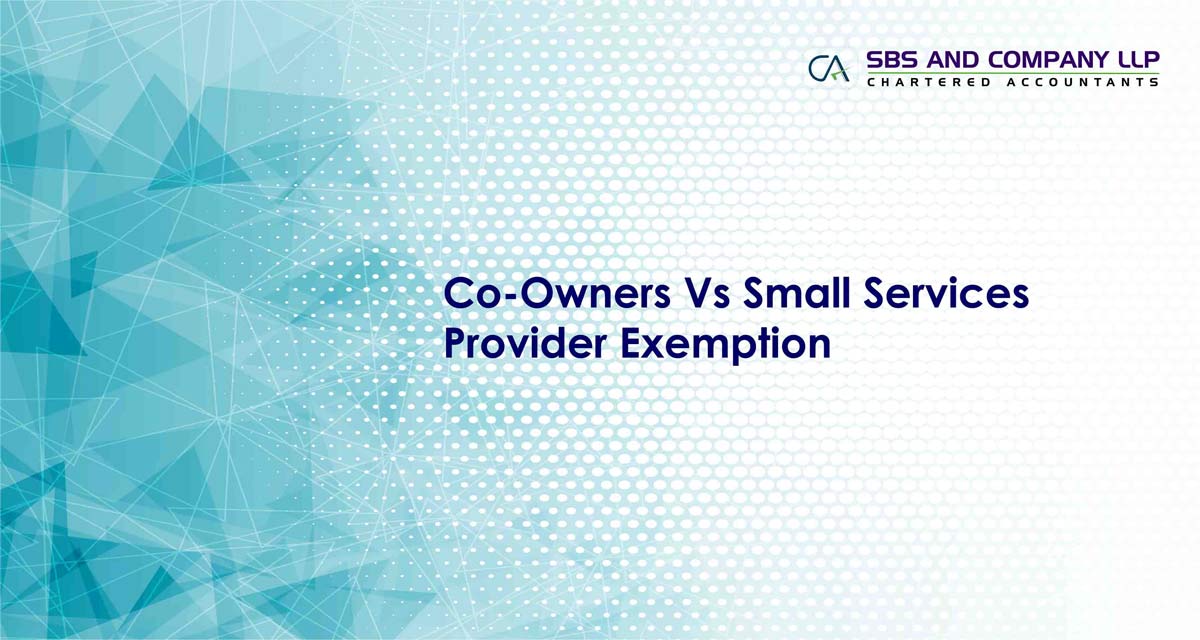By this time, the Practicing Professionals [CA, CS, CWA] would have got a glimpse of the documentation involved for complying with the provisions of the Companies Act, 2013, and clients arguing and wondering why? do I have to do all these filings and documentation, on the pretext that, mine is a very small business.
The real documentation and reporting lies ahead at the time of preparation of the Accounts, Board’s Report and Annual Return for the FY 2014 – 2015, and only then the real banging of heads will begin. The working style of copy and paste of a borrowed format is long gone, as reporting will be company specific.
With the above in mind, it has become the need of the hour for the professionals and business houses to suitably identify and explore other business models, with less compliances, so as to enable them to concentrate on carrying on the business, with minimal compliances.
This is where, the till now, not so popular concept of Limited Liability Partnership [LLP] comes into picture as an alternative.
Points in favour of an LLP are:
- Limited Liability to the Partners, similar to Limited Liability of members of a Company.
- Minimal intervention from Government;
- Minimal cost [Statutory Fees], in comparison with Companies;
- Comparatively less Compliances [please refer to the October, 2014 issue of SBS Wiki, for list of compliances as applicable to a LLP];
- Relaxed requirement as to holding of Meetings under the Act, However the procedure as to calling and conducting of meeting are governed by the terms specifically spelled out in the LLP Agreement;
- Relaxed/minimal requirement of maintenance of Large statutory records;
- No specific regulation/restriction as to related party transactions [as of now];
- Relaxed requirement as to Audit of financials. Audit not required for LLPs having Capital contribution upto Rs.25 Lakhs and Turnover of upto Rs.40 Lakhs.
- Comparatively less financial disclosure norms.
With the above advantages, conversion of a Private Company or an unlisted Public Company is only the probable option available to reduce the burden as to the compliances.
An effort has been made to list out the steps involved in the conversion of a Company to LLP:
Governing provisions:
Conversion of a Private Company into LLP is governed by the provisions of Section 56 of the LLP Act, 2008, read with Schedule 3 to the Act, and applicable rules.
Conversion of a Private Company into LLP is governed by the provisions of Section 57 of the LLP Act, 2008, read with Schedule 4 to the Act, and applicable rules.
Important aspects for conversion (pre-requisites) and upon conversion:
- There should not any charge created/subsisting on the property of the Company.
- All the Shareholders of the Company shall become the partners of the LLP and nobody else.
- On conversion, all the tangible (movable and immovable) property and the intangible property, all assets, interest, rights, privileges, liabilities, obligations of the firm/Company shall stand transferred to, and vest in, the LLP, without further assurances, act or deed. Necessary steps are to be taken for intimation of the registration authorities as to the conversion for effecting the change in their record.
- Further, the Company after being converted in to LLP, shall stand dissolved.
- Any court proceedings for and on behalf of the Company or any conviction, ruling judgment relating to the Company shall be enforceable on the LLP, upon conversion.
- Any and all existing contracts, agreements, bonds in the name of the company, shall stand transferred to the LLP, including permits, licenses, if any, subject to the provisions of the respect enactment under which the permit, license were issued
- Every employee of the Company shall continue to be the employee of the LLP, after its conversion.
- For a period of Twelve (12) months after the date of conversion, every official correspondence of the LLP shall have to invariable state that (a) it was converted from a Company to LLP and (b) the name and registration number of the Company from which it was converted.
Before seeing the procedure for conversion, let us also have a peek in to RBI and Income Tax point of view:
RBI PERSPECTIVE:
FDI in LLP is allowed in such sectors/activities, where 100% FDI is allowed under automatic route, without any FDI-linked performance related conditions. Even such entry is subject to prior Government / FIPB approval.
FDI is not allowed in:
- Sectors with less than 100 % FDI under automatic route,
- Sectors with Approval route, activities such as Agricultural/plantation and Print media and Sectors in which FDI is prohibited.
Prior permission for Conversion:
Conversion of a company with FDI, into an LLP, will be allowed only with the prior approval of FIPB/Government, and upon fulfilment of stipulations as laid under FEMA.
Restriction as ECB:
LLPs shall not be permitted to avail External Commercial Borrowings (ECBs).
INCOME TAX:
Capital Gains on conversion of Company into LLP:
The Finance Bill 2010-11 has proposed to insert a new clause (xiiib) under Section 47 of the Income Tax Act, 1961 whereby any transaction concerning transfer of a capital asset or intangible asset by a Private Company or unlisted Public Company to a Limited Liability Partnership as a result of conversion of the company into a Limited Liability Partnership in accordance with the provisions of section 56 or section 57 of the Limited Liability Partnership Act, 2008 would be
exempted from the provision of Capital Gain Tax, only if the following conditions are satisfied:
- All the assets and liabilities of the Company immediately before the conversion shall become the assets and liabilities of the limited liability partnership;
- All the shareholders of the Company immediately before the conversion shall become the partners of the limited liability partnership and their capital contribution and profit sharing ratio in LLP should remain in the same proportion as their shareholding in the company on the date of conversion;
- The shareholders of the company do not receive any consideration or benefit, directly or indirectly, in any form or manner, other than by way of share in profit and capital contribution in the limited liability partnership;
- The aggregate of the profit sharing ratio of the shareholders of the company in the LLP shall not be less than fifty per cent at any time during the period of five years from the date of conversion;
- The total sales, turnover or gross receipts in business of the company in any of the three previous years preceding the previous year in which the conversion takes place does not exceed sixty lakh rupees; and
- No amount is paid, either directly or indirectly, to any partner out of balance of accumulated profit standing in the accounts of the company on the date of conversion for a period of three years from the date of conversion.
- However in case of non-compliance of any of the conditions provided as aforesaid, the amount of profits or gains arising from the transfer of such capital asset or intangible asset not charged under section 45 by virtue of conditions laid down in the said provision shall be deemed to be the profits and gains chargeable to tax of the successor limited liability partnership for the previous year in which the requirements of the said proviso are not complied with.”
- Where a private company or unlisted public company is converted into limited liability partnership in any previous year, the MAT credit which was available to the company shall lapse.
The steps for conversion:
- To decide upon as who shall be Designated Partners among the Partners. One of them should be a Resident Indian;
- Convene a Board Meeting and pass a Board resolution for seeking name availability, and making an application to the Registrar of Companies/LLP, for availability of name of the LLP
- Convening of EGM for obtaining the approval of the members for the proposed conversion of the Company to LLP.
- Drafting of LLP agreement.
- Sign various documents to be filed with the Registrar of Companies/LLP, electronically, and payment of requisite fee to Ministry of Corporate Affairs.
- Scrutiny of documents by the Registrar of Companies/LLP [ROC], and Receipt of Certificate of Registration/Incorporation from ROC.
- Intimation to ROC about the conversion of the Company to LLP, for dissolution of the Company.
- Execution of the LLP agreement on the date of registration of the LLP, payment of stamp duty on the agreement, and filing of the agreement with Registrar of Companies/LLP.
- Obtaining registrations, as applicable, depending upon the activities of the company.
STEPS FOR CONVERSION IN DETAIL:
- Deciding upon the Designated Partners:
Firstly, it is to be decided, as to who will be Designated Partners of the LLP after its conversion. The shareholders can decide up on as to whom among them shall be Designated partners. Further the Directors who may or may not be the Shareholders of the Company, may also be appointed as Designated partners, if the shareholders desire so.
- Name Approval of the LLP:
For name availability, an application in LLP Form-1, is required to be filed along with the Resolution of the Board of Directors for proposed conversion of the company to LLP, with the Registrar of Companies/LLP (ROC/LLP) online.
The format in which names allotted are:
Existing Company name: XYZ SOFTWARE TECHNOLOGIES PRIVATE LIMITED
LLP Name: XYZ SOFTWARE TECHNOLOGIES LLP
(or)
XYZ SOFTWARE TECHNOLOGIES LIMITED LIABILITY PARTNERSHIP
The ROC/LLP scrutinizes the application filed and sends the approval or objections to the applicant through e-mail.
- Convening of EGM:
Consequent upon receipt of the LLP name, an Extra-ordinary General Meeting of the members of the Company is required to be convened for obtaining the approval of the members for the proposed conversion.
Resolutions are required to be passed and filed with ROC in Form MGT-14
- Drafting of the LLP Agreement:
After the approval of name, we need to finalize the LLP agreement.
All the points which the parties intend to have in their LLP agreement shall be expressly included in the agreement, as the same will be replacing the MOA/AOA of the Company upon conversion.
- Documents required for Conversion:
The under mentioned documents are required to be filed with ROC for conversion of Company to LLP:
Subscribers list along with Consent - The Subscription should be signed by the proposed Partners/Designated Partners and all the basic details as to name, father's name, Address, Date of Birth and Occupation, shall be written in their own handwriting in the presence of a witness. The subscribers sheet shall also contain the statement as to their consent to act as partner/Designated partner of the LLP.
Proof of Registered office - A proof as to the proposed registered office address of the LLP shall be attached to the incorporation documents. A no-Objection shall be obtained from the Owner of the property and attached for use of the premises as the registered office of the LLP.
Details of Interests – The details as to the other entities i.e., Companies/LLP/Firms etc., in which the proposed Partners/Designated Partners needs to be obtained and attached to the incorporation document.
LLP Form 2 – Incorporation document – The LLP Form 2 containing all the details as to the partner/designated partner, their contribution, address of the registered office, the documents detailed above, is to be prepared, and filed with the Registrar of Companies/LLP, and pay the requisite fees depending upon the contribution of the LLP.
It is to be noted that the paid-up share capital in the Company shall be the contribution of the LLP, and the nominal value of the shares held by the individual shareholders shall be their contribution to the LLP.
LLP Form 18 - Application and Statement for conversion of a private company / unlisted public company into LLP – This application consists of all the details as to the conversion, pending cases, proceedings, etc.,. To this form, the following documents are to be attached.
- Statement from Shareholders- to be obtained individually from all the Shareholders as below:
- that all the requirements of the Limited Liability Partnership Act, 2008 and the rules made thereunder have been complied with, in respect of conversion of private company/ unlisted public company into limited liability partnership and matters precedent and incidental thereto;
- that all the partners of the limited liability partnership comprise all the shareholders of the company and no one else;
- that the applicable clearances, approvals or permissions for conversion of the company into a limited liability partnership from any authority/ authorities have been obtained.
- that the consent of all the secured creditors for conversion of the company into limited liability partnership has been obtained;
- that all the documents due for filing including latest balance sheet and annual return have been filed under the provision of the Companies Act, 1956;
- that to the best of my knowledge and belief, the information given in this form and its attachments is correct and complete.
- Statement of Assets and Liabilities of the company duly certified as true and correct by the auditor, not older than 15 days from the submission of the statement.
- Copy of the acknowledgement of the Latest Income Tax Return
- Consent from any secured creditors for the proposed conversion.
- Any such other document as required and appropriate.
- Scrutiny of the documents:
After scrutinizing the documents and after being satisfied himself, the Registrar of Companies/LLP, issues a Certificate of Registration/Incorporation, after which the LLP legally comes into existence.
- Intimation to ROC about the conversion of Company to LLP:
Subsequent upon the registration/conversion of the Company into LLP, Form No.14, is to be filed with the Registrar of Companies within 15 days of the registration, intimating the ROC about the conversion, so as to enable the ROC for dissolving the Company consequent upon conversion to LLP.
- Execution of the LLP agreement, payment of stamp duty on the agreement, and filing of the agreement with Registrar of Companies/LLP:
On receipt of the LLP registration Certificate, the partners shall enter in to the LLP agreement, pay necessary stamp duty on the agreement, and electronically, file the agreement with the Registrar of Companies/LLP in LLP Form-3.
Finally
- Applying of PAN, opening of bank account, obtaining necessary registrations/getting necessary changes in the registrations and proceeding with the business activities.
Conclusion
With the increased compliances and the onus of timely guidance to clients, being rested on us, LLP is definitely an option for small business and definitely the way ahead.
This article is contributed by Partners of SBS and Company LLP - Chartered Accountant Company. You can be reached at This email address is being protected from spambots. You need JavaScript enabled to view it.








